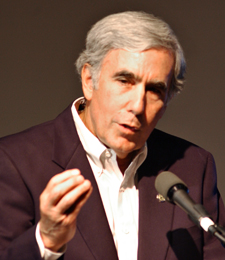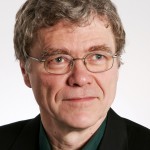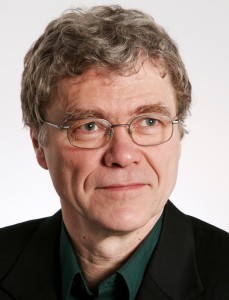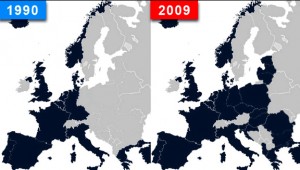Archive for the ‘Ukraine’ Category
TFF PressInfo 279: Hot Russian-US discussion in Moscow
By Jonathan Power
September 16, 2014
A couple of days ago I was on the Moscow metro. In the interchange I asked two twenty something young women the direction. Then they asked me did I like Russia? I asked them the same question and they said “no”. They didn’t like the way President Vladimir Putin was restricting freedom.
Then I asked them what they thought of Ukraine. They said that it upset them. They had some Russian-speaking friends living in eastern Ukraine and the friends didn’t feel the militias represented them.
Interestingly, the women said they knew there were Russian troops in Ukraine.
This was one of the most explicit but rare condemnations of Russia that I came across.
I also talked to two groups of students at Moscow’s prestigious Institute of World Economy and International Relations, where I had been invited to speak by the US-Russian Forum, where top think-tankers and academics tried to thrash out their differences. Read the rest of this entry »
TFF PressInfo 277 – After all this, what?
A couple of messages to NATO’s Summit
By Jan Oberg, TFF co-founder
Lund, Sweden September 5, 2014.
Yugoslavia then and now
TFF’s first report from Yugoslavia from September 1991 carried the title, After Yugoslavia – What? It is now one of 127 reports and articles in the huge research and policy blog – Yugoslavia – What Should Have Been Done?
It contains the equivalent of 2000 book pages authored by Johan Galtung, Jan Oberg and Hakan Wiberg. All articles are published as they were written at the time. For anyone to see whose analyses stood the test of time.
We opened this blog two days ago – on the 23rd year of TFF’s first of some 70 peace missions into the war zones.
While it is important to analyse the world, it is more important to criticise it and most important to search – and re-search – alternatives to it. Thus the title. You are kindly invited to browse.
Such work is not only of historical interest. It carries a message for the future – as does all good research.
While inner factors were certainly dominant, the West – in its misguided attempt at playing peace maker – Read the rest of this entry »
The big crises – NATO and demonstrators both fail
By Jonathan Power
September 2nd 2014
Violence should have had its day. Look at its non-achievements: The US/British/French invasions of Iraq, Afghanistan and Libya. The upheavals of the “Arab Spring”. And now Ukraine.
Will we ever learn its limitations?
In Iraq outsiders’ violence overthrew the dictator Saddam Hussein who for all his faults provided stability, safety on the streets, food, a falling infant mortality rate and universal health services. What did it substitute beside the worthwhile job of killing off Saddam?
Mayhem, tens of thousands of deaths of innocents, fear of the street, shortages of food, upheavals in the health services and schools. And an ongoing instability, not least the opening given to ISIS.
In Libya, Read the rest of this entry »
The Fall of the US Empire – And then what?
By Johan Galtung
Is the title of a book published by TRANSCEND University Press in 2009, now in second printing, and several translations including Chinese. There were two subtitles indicating answers: Successors, Regionalization or Globalization? – US Blossoming or US Fascism?
What is the situation today, five years later?
Successors? UK is militarily with USA to keep Anglo-America as a dominant world force even if a shadow of 50 years ago; France tries to keep its hold on former colonies in Africa; they use NATO-North Atlantic Treaty Organization for military and EU-European Union for political support. In empires the local elites line up to do the killing; yet the Western powers have mainly to do that themselves.
China is very active economically abroad, some of it structural violence; however, the military component has not been used aggressively.
Russia went into the “near abroad”, CIS-Commonwealth of Independent States, Ukraine; but for other reasons. The gift of Crimea to Ukraine in 1954 was a mistake to be corrected as conditions changed; and Moscow, not Kiev, proposes federal solutions for “one country, two nations”. In short, no successors. Read the rest of this entry »
TFF PressInfo 276 – Ceasefire in Eastern Ukraine: Now withdrawal by Russia, the UN in and NATO out
By Jan Oberg, TFF co-founder
Lund, Sweden September 3, 2014 – 11:30 CET.
As announced just a few minutes ago, the Ukrainian and Russian president have agreed to what the first reports call a permanent ceasefire in Eastern Ukraine.
That’s indeed the best piece of news from that region.
It places the NATO Summit in Wales this Thursday and Friday in a new light.
The ceasefire must be solidified
However, an agreement over a phone is only a beginning; the devil is in the details. Secondly, there is no mention – yet – of the East Ukrainian fighters are on board this agreement.
Time for UN peacekeeping
Third, a credible ceasefire should be monitored by neutral observers and competent people. The only ones who can do that is the UN peace-keepers – perhaps with some staff also from Russia and Ukraine. Read the rest of this entry »
Demand swells for straight answers on plane in Ukraine
By David Krieger and others
A long list of prominent individuals has signed, a number of organizations will be promoting next week, and you can be one of the first to sign right now, a petition titled “Call For Independent Inquiry of the Airplane Crash in Ukraine and its Catastrophic Aftermath.”
The petition is directed to “All the heads of states of NATO countries, and of Russia and the Ukraine, to Ban-ki Moon and the heads of states of countries on the UN Security Council.” And it will be delivered to each of them.
The petition reads . . continue here. And please sign it!
TFF PressInfo: Support Richard Branson’s Ukraine dialogue initiative
TFF PressInfo 273
By Jan Oberg, TFF co-founder
Lund, Sweden August 22, 2014
We are drifting towards a new Cold War. The reason isn’t substance because there is no reason we should not be able to live in peace in Europe – if we want and educated ourselves in handling problems.
No, the reason is the woefully incompetent way in which politicians and media focus on violence and ignore the underlying conflict and civil means – yes yes, of course there are exceptions.
Escalation doesn’t create peace
Here is just one example – NATO S-G Anders Fogh Rasmussen and NATO’s supreme commander General Breedlove (funny name given his anything but loving views coming rather from a Strangelove …) in the Wall Street Journal.
They tell you about all the escalation they have already done Read the rest of this entry »
Rusland, EU og sanktionerne
Af Jens Jørgen Nielsen
Betragtninger 7. august, 2014
Vi lever i en interessant tid. Og den er ikke kedelig. Mange faste forestillinger ændrer sig. Det slår mig, at EU politikere og ditto amerikanske ved meget lidt om både Rusland og verden. Som EU borger kan jeg med beklagelse konstatere, at EU ikke har nogen politik i forhold til Rusland. Og højstemt forargelse og at snakke amerikanerne efter munden tæller ikke som en egentlig politik.
Hvilke forestillinger har EU politikerne haft om slutspillet i Ukraine? Hvilke forestillinger har de haft om virkningerne af sanktionerne? Hvilken viden og forståelse af hvilket land Rusland er, har de samme politikere haft?
Det er som om dæmonisering af Putin har gjort det ud for en politik. Jeg opfordrer ikke her til at man skal elske Putin. Men jeg opfordrer for det første til at finde ud af, hvad man ønsker med Rusland og for den sags skyld også med Ukraine. For det andet, at man gør sig overvejelser over, hvad sanktionerne betyder på både det lange og korte sigt.
Hvad har mangelen på overvejelser over egne interesser og mangelen på analyse af sanktionernes virkning ført til? Read the rest of this entry »
Putins Rusland er ikke som Sovjet
Af Jens Jørgen Nielsen
Billedet af Rusland i de vestlige medier er i dag næsten mere dystert end under den kolde krig. Mange tror, at russerne lever i fattigdom og ufrihed i evig angst for Putins rædselsregime, præget af få censurerede medier. Rusland skulle angiveligt være ved at falde sammen og borgerne længes efter de friheder, som vesten kan tilbyde.
Putin skulle angiveligt være nervøs for, at den ukrainske ’demokratiske’ revolution skulle sprede sig til Rusland. Derfor skal vi i vesten entydigt støtte Kiev regeringen og den ikke-parlamentariske opposition i Rusland. Mange vestlige politikere mener, at vi økonomisk skal isolere Rusland.
EU og USA fokuserer i disse tider på at straffe Rusland og Read the rest of this entry »
TFF PressInfo: Cold War warnings 1998 – 2014
By Jan Oberg
Lund, Sweden August 11, 2014
Quality research leads to better predictions
One criteria of quality research is that it predicts the future better than incompetent research.
Because TFF is independent of governments and coroporations it doesn’t have to take political considerations or exclude certain theories, concepts or values. This free research enabled it over the years to make fairly precise predictions about for instance former Yugoslavia, the Iraq war and East-West relations.
In 1998 – 16 years ago – we warned that NATO’s expansion would lead to future problems with Russia. Read it here.
NATO should never have been expanded
We backed this prediction up with 46 arguments and argued that so many other things would be wiser than containing Russia from the Baltic republics to Georgia – a strategy pursued by Bill Clinton in contravention of all promises given to the Soviet Union/Russia at the end of the Cold War about ten years earlier.
That counterproductive and insensitive expansion has now hit Ukraine. A new Cold War is gathering over Europe. It should have been predicted by advisers, intelligence agencies, big research institutes and columnists.
But it wasn’t.
At the end of the Cold War, NATO/the West got everything it could ever wish – and without war. But it wanted more: keeping Russia down, making NATO bigger and “peace-making” as well as finding new enemies to keeping its Military-Industrial-Media-Academic Complex (MIMAC) alive and well: Saddam, Milosevic, the Muslim world, terrorism and – now re-cycling – Russia. Read the rest of this entry »







